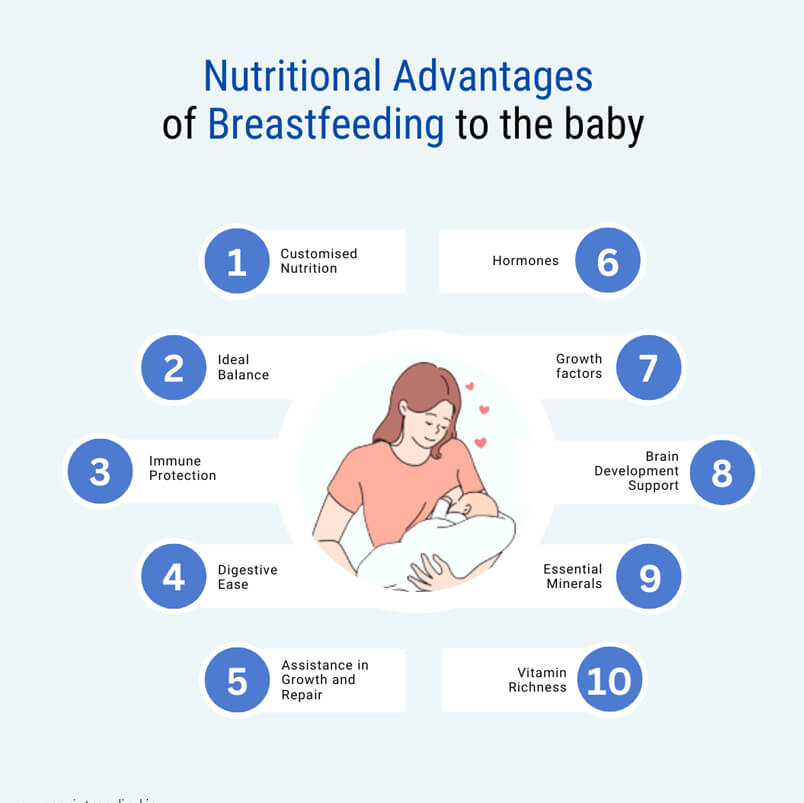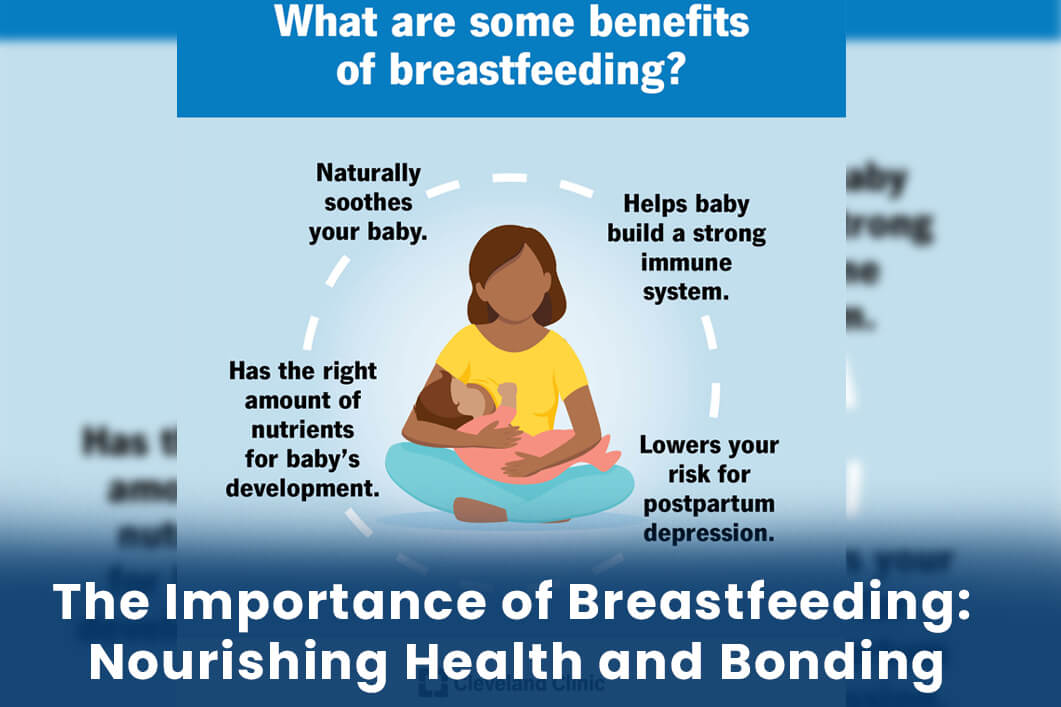One of the healthiest and most natural ways to guarantee a newborn's well-being is to breastfeed them. In addition to giving vital nutrients, it strengthens the special link that exists between a mother and her kid. Breastfeeding has been a fundamental aspect of baby care for many years, but as we become more aware of its many advantages, its importance is becoming more apparent.
The following are strong arguments in favour of breastfeeding, which benefits both the mother and the child:
- Optimal Nutrition for Babies:
- Boosts Immunity and Reduces Risk of Illness:
- Promotes Cognitive Development:
- Enhances Mother-Child Bonding:
- Health Benefits for Mothers:
It's common to hear that breast milk is nature's ideal baby nourishment. It has the ideal ratios of proteins, lipids, vitamin Breast milk, and antibodies to support normal growth. is more easily digested than formula, which lessens the chance of constipation and colic in infants. Additionally, it changes with time to accommodate a child's evolving demands. Colostrum, the first milk, has potent immune-stimulating qualities and is loaded with antibodies.
The defence against infections that breastfeeding provides is one of its most important advantages. Breast milk antibodies protect babies against various diseases, such as respiratory infections, diarrhoea, ear infections, and even long-term ailments like allergies and asthma. Research indicates that breastfed infants are less likely to be hospitalized in their early months compared to formula-fed infants.
According to research, breastfed children typically develop more cognitively as adults. The mix of nutrients, such as fatty acids, which are critical for brain development, or the intimate physical contact that occurs during feeding that improves emotional security could be the cause of this.
Breastfeeding develops a strong emotional bond between a mother and her child in addition to providing nutrition. In addition to strengthening the link and giving the baby a sense of security and comfort, skin-to-skin contact also triggers the production of oxytocin, which is commonly referred to as the "love hormone." The child's emotional development will benefit in the long run from this relationship.
Breastfeeding mothers also reap several health advantagesBreastfeeding reduces postpartum bleeding by hastening the uterus's return to its pre-pregnancy size. Additionally, it has been connected to a lower incidence of type 2 diabetes, postpartum depression, and malignancies of the breast and ovary. Breastfeeding also increases calorie expenditure, which can help with weight loss after pregnancy.

Even while breastfeeding is very advised, it's crucial to recognise that some women may find it difficult Obstacles can be caused by problems like as limited milk supply, or trouble latching.Getting help from lactation consultants, medical professionals, or nursing support groups can be quite beneficial in these situations.
Giving their children the gift of breastfeeding is something women can never replace. It offers The short-term drawbacks are much outweighed by the lo vital nutrients, boost immunity, encourage emotional attachment, and even safeguard the mother's health. long-term advantages, even though it could provide some unique issues. Fostering breastfeeding as an innate, healthful option helps create a better, more interconnected environment for coming generations.
Remember that every drop matters and that nursing has lifelong benefits if you're a new or expecting mother or someone who is helping someone else with their breastfeeding journey!
